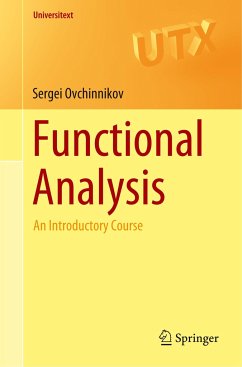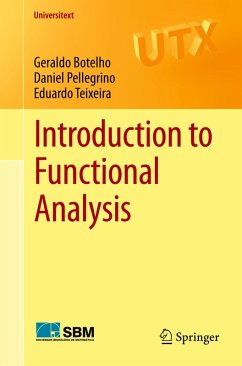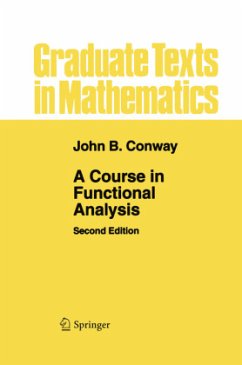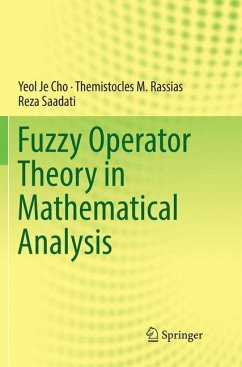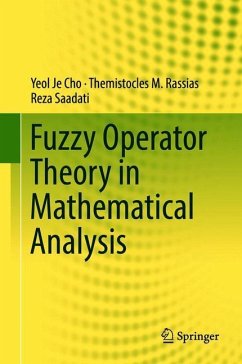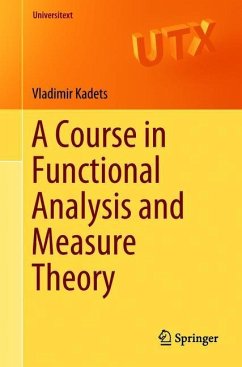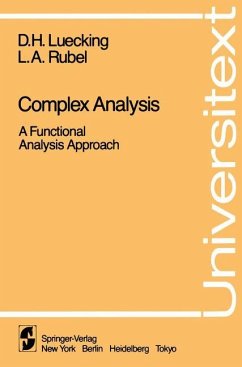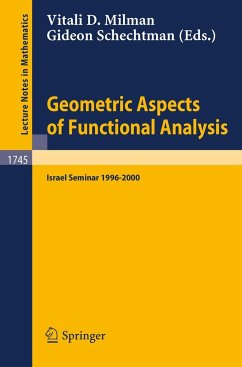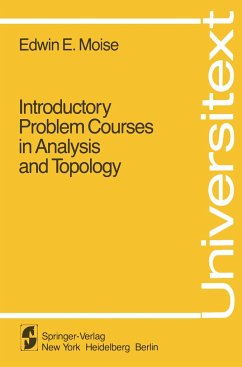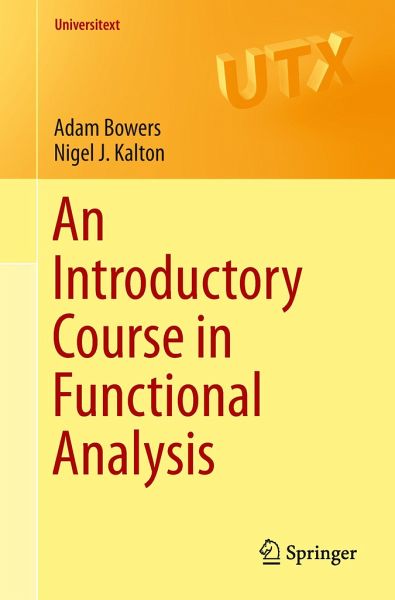
An Introductory Course in Functional Analysis

PAYBACK Punkte
27 °P sammeln!
Based on a graduate course by the celebrated analyst Nigel Kalton, this well-balanced introduction to functional analysis makes clear not only how, but why, the field developed. All major topics belonging to a first course in functional analysis are covered. However, unlike traditional introductions to the subject, Banach spaces are emphasized over Hilbert spaces, and many details are presented in a novel manner, such as the proof of the Hahn-Banach theorem based on an inf-convolution technique, the proof of Schauder's theorem, and the proof of the Milman-Pettis theorem.With the inclusion of m...
Based on a graduate course by the celebrated analyst Nigel Kalton, this well-balanced introduction to functional analysis makes clear not only how, but why, the field developed. All major topics belonging to a first course in functional analysis are covered. However, unlike traditional introductions to the subject, Banach spaces are emphasized over Hilbert spaces, and many details are presented in a novel manner, such as the proof of the Hahn-Banach theorem based on an inf-convolution technique, the proof of Schauder's theorem, and the proof of the Milman-Pettis theorem.
With the inclusion of many illustrative examples and exercises, An Introductory Course in Functional Analysis equips the reader to apply the theory and to master its subtleties. It is therefore well-suited as a textbook for a one- or two-semester introductory course in functional analysis or as a companion for independent study.
With the inclusion of many illustrative examples and exercises, An Introductory Course in Functional Analysis equips the reader to apply the theory and to master its subtleties. It is therefore well-suited as a textbook for a one- or two-semester introductory course in functional analysis or as a companion for independent study.





